Garden pests - Cherry Aphids
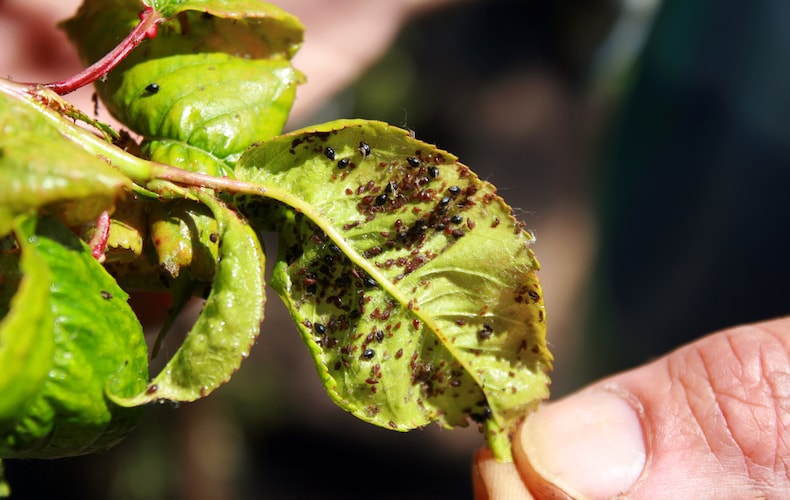
Keep an eye out for cherry blackfly
Image: Timonina/Shutterstock
If your cherry tree has curling, yellowing leaves it’s possible that it has been affected by cherry blackfly. Read on to find out how to control this garden pest.
What is cherry blackfly?
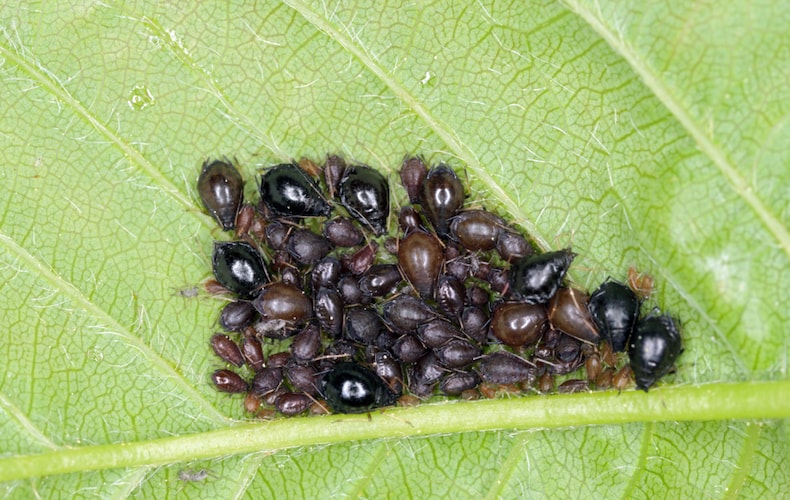
These wingless bugs live on the underside of cherry leaves
Image: Tomasz Klejdysz/Shutterstock
Cherry blackfly, or cherry aphids, are a type of aphid that feed on fruiting and ornamental cherry trees. These sap-sucking aphids overwinter as eggs, hatching out in the spring and living on the underside of cherry leaves.
The shiny, black wingless bugs will then lay their eggs near cherry buds in the autumn.
How to recognise cherry blackfly damage
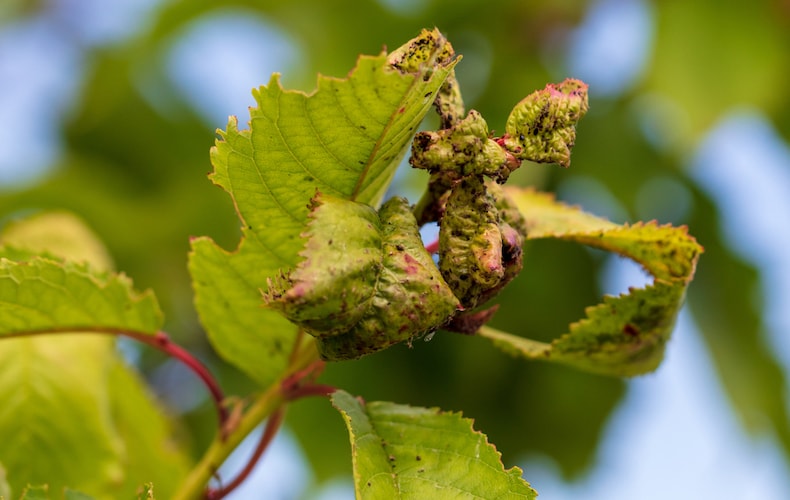
Curled leaves are the first signs of blackfly infestation
Image: schankz/Shutterstock
Cherry blackfly live on the underside of leaves and look like small, black eggs.
The first signs of infestation are unsightly damage to your cherry tree’s foliage. These aphids feed at the shoot tips and cause leaves to grow crumpled or curled.
They excrete sticky honeydew on which develops a black, sooty mould. This mould reduces the amount of light that the leaves get and causes them to yellow and drop off.
What plants do cherry blackfly eat?
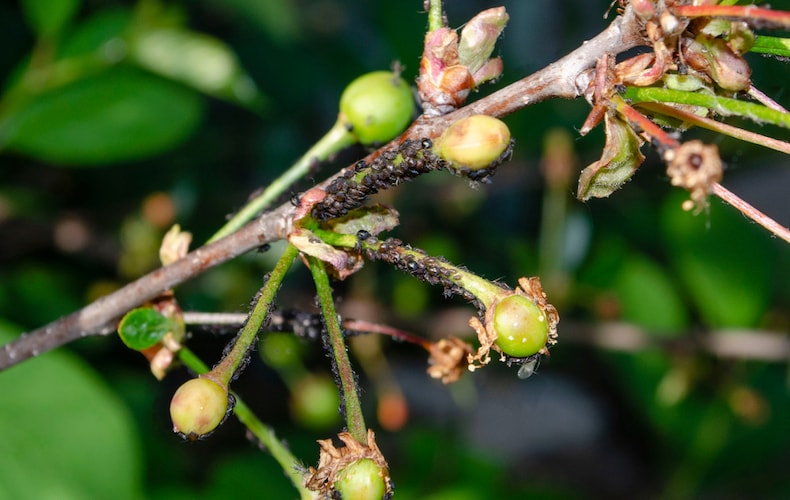
Blackfly infestation usually leave the growing cherry fruit alone
Image: Oksana Akhtanina/Shutterstock
Cherry blackfly feed on the leaf sap of fruiting and ornamental cherries - although Japanese varieties are often unaffected.
Although they cause unattractive damage to a tree’s foliage, they don’t usually affect fruit bearing and the tree will normally survive.
How can I control cherry blackfly?
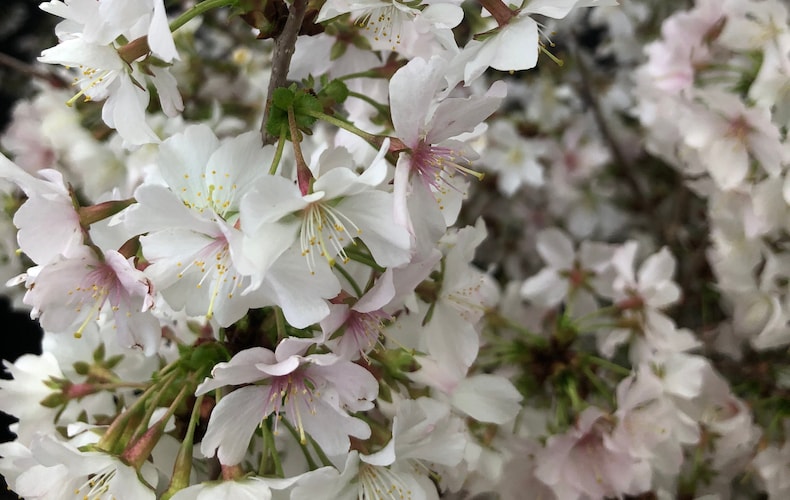
Japanese varieties, like 'Kojo-no-mai' are more resistant to cherry blackfly
Image: Prunus incisa 'Kojo-No-Mai' from Thompson & Morgan
Here’s how to control a cherry blackfly infestation:
- Encourage natural predators - Cherry blackfly have lots of natural predators - such as ladybirds, lacewing and hoverfly larvae and some species of parasitoid wasp. You can encourage more of these predators into your garden with a lacewing or ladybird box. If your cherry tree is in a greenhouse or conservatory, you could try introducing natural predators into that environment.
- Choose Japanese varieties - if you’re looking to plant cherry trees in your garden, choose Japanese varieties which are not susceptible to cherry blackfly.
- Treat trees in the winter - reduce the number of overwintering eggs by spraying small trees with plant oil winter tree wash.
- Spray with an organic pesticide - Spray small fruiting and ornamental cherries regularly with an organic aphid spray containing fatty acids or plant oils in early spring, before leaf-curl damage begins.
For more information on fruit trees, visit our comprehensive hub page.







